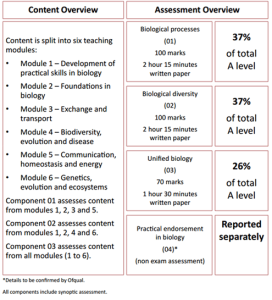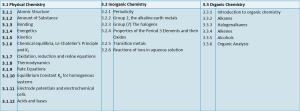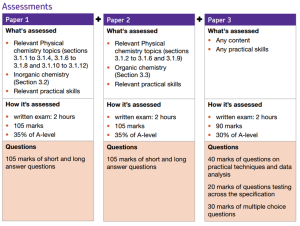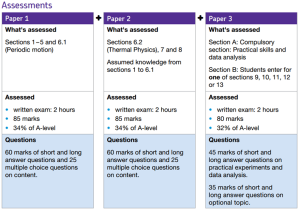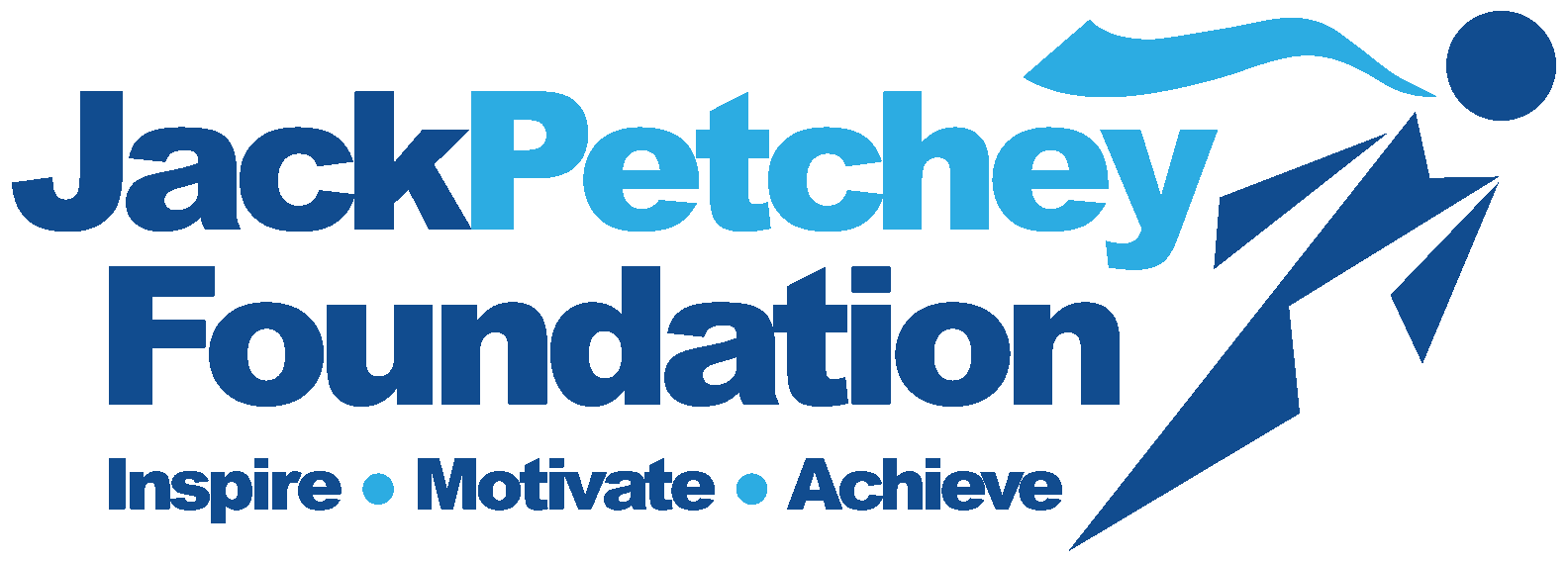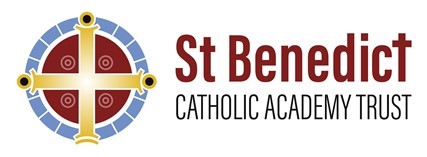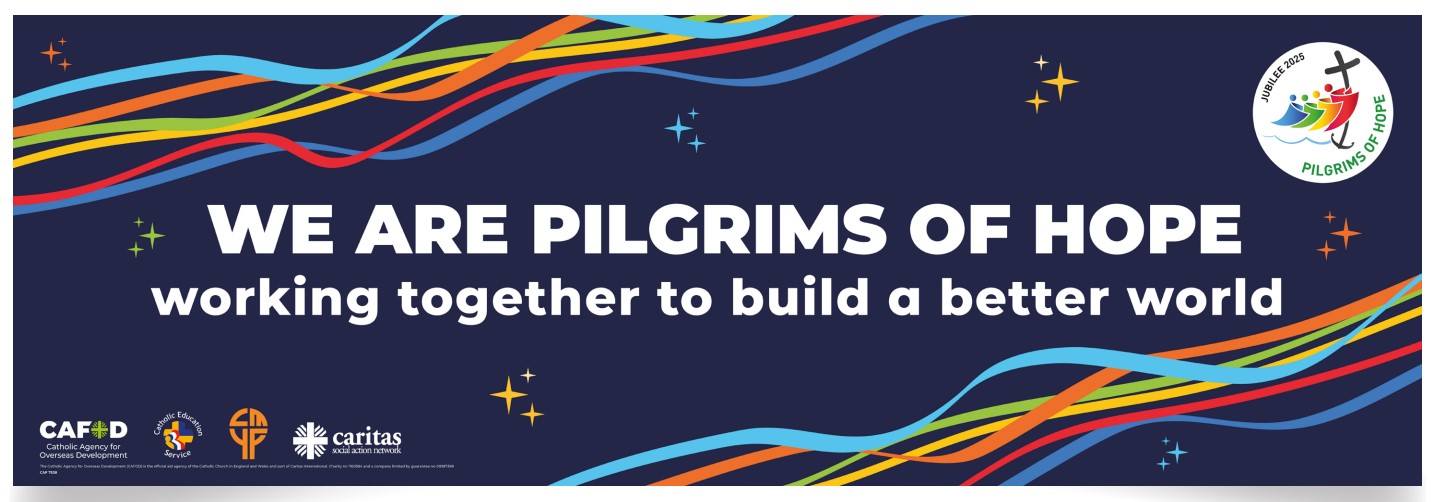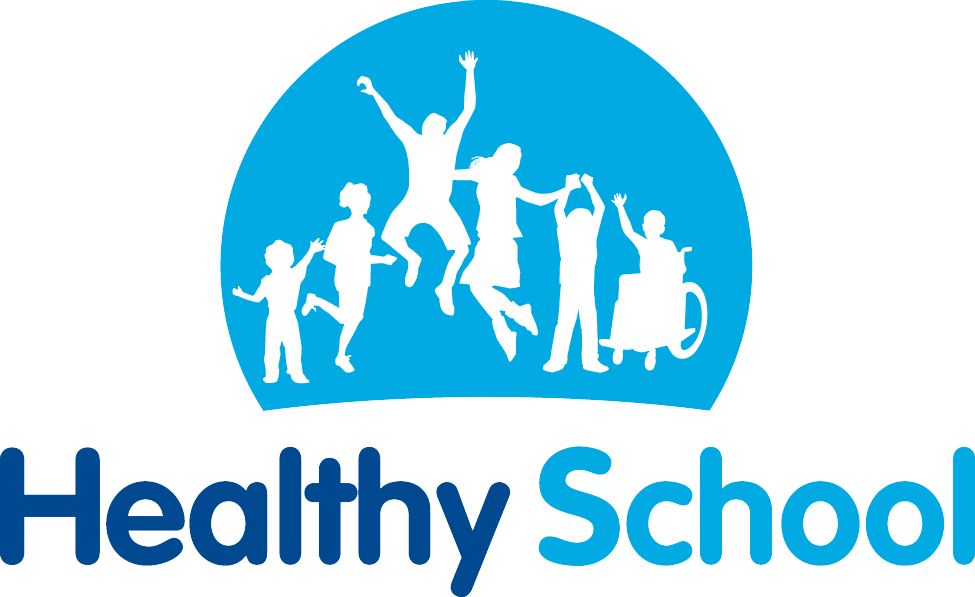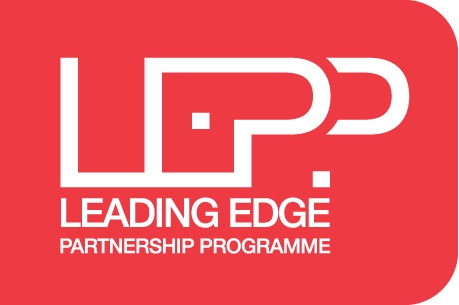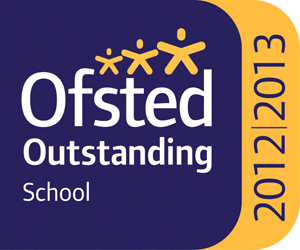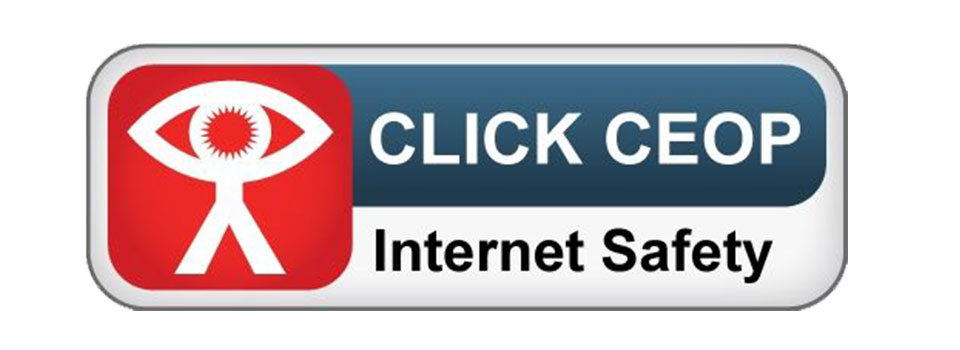A-Level Science
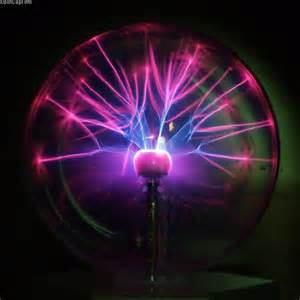
The Science Department at St. Michael’s aims to provide pupils with an enjoyable and meaningful science curriculum. We believe that an understanding of science is vital for full participation in today’s world. We aim to prepare students not only to be successful in the study of science, but to be informed citizens who understand the impact of science on their lives. The world is rapidly changing and scientific advancement is offering new opportunities and new risks.
Young people today need an understanding of science to access information about their choices, and to have critical thinking skills to interpret that information when making decisions. These include personal decisions about aspects of daily life such as their diet; choosing appliances; understanding an energy bill or understanding a medical diagnosis and treatment.
We also aim to equip students with the ability to debate current affairs and to participate in a democracy where politicians make decisions about scientific issues such as stem cells; nuclear and renewable power; and GM crops.
Our lessons include practical demonstrations and numerous opportunities for pupils carry out their own experiments – features which are central to the teaching ethos of the department. This provides not only an effective means of explaining abstract concepts but also engaging and inspiring students. Throughout each topic activities lead students to demonstrate and enhance their skills, knowledge and understanding.
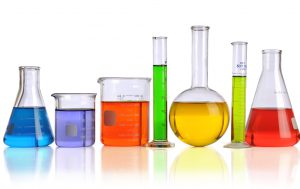
KS5
The department currently runs KS5 courses, offering A Levels in Biology, Chemistry and Physics.
From September 2015, all students will sit the new A Level courses. The course structures have changed, particularly with regards to the assessment of Practical Skills. These will now be assessed through a series of practical investigations carried out in lessons. This will not contribute to the overall grade but will be noted on certificates as a “Practical Skills Endorsement”. Students’ understanding of the key practical investigations and techniques will also be assessed in the written examination papers. It is important to note that while it is still possible to sit an AS levels in the three sciences that the AS levels do not count towards the A level qualifications. All A level exams must be taken at the end of Year 13.
Biology
Course: OCR Biology A
OCR’s A Level in Biology A specification aims to encourage learners to:
- develop essential knowledge and understanding of different areas of the subject and how they relate to each other
- develop and demonstrate a deep appreciation of the skills, knowledge and understanding of scientific methods
- develop competence and confidence in a variety of practical, mathematical and problem solving skills
- develop their interest in and enthusiasm for the subject, including developing an interest in further study and careers associated with the subject
- understand how society makes decisions about scientific issues and how the sciences contribute to the success of the economy and society (as exemplified in ‘How Science Works’ ).
Full details of the course can be found on the course website: (http://www.ocr.org.uk/qualifications/as-a-level-gce-biology-a-h020-h420-from-2015/)
An overview of the course content and assessments is shown below.
Chemistry
Course: AQA Chemistry A
Full details of the course can be found on the course website:
(http://www.aqa.org.uk/subjects/science/as-and-a-level/chemistry-7404-7405)
AQA’s A Level in Chemistry aims to encourage learners to:
- develop crucial knowledge and understanding of the core areas of chemistry, including the ability to bridge between them
- develop and demonstrate key skills including a working understanding of vital scientific methods
- confidently display competence in a variety of practical, mathematical and problem solving skills
- develop their interest in and enthusiasm for the subject, including developing an interest in further study and careers associated with the subject
- understand how scientific issues influence society and have a critical understanding about how these decisions are made and the contribution of the sciences to the success of the economy and society.
An overview of the course and examinations is shown below.
Course Content (please click to enlarge)
Physics
Course: AQA Physics A
Full details of the course can be found on the website:
(http://www.aqa.org.uk/subjects/science/as-and-a-level/physics-7407-7408)
The A level physics course aims to:
- build on knowledge from GCSE to deepen the understanding of the subject as well as to introduce new areas of study
- develop and demonstrate a deep appreciation of the skills, knowledge and understanding of scientific methods and the history of science through examination of key experiments
- broaden and enhance students’ practical, mathematical and problem solving skills
- develop their interest in and enthusiasm for the subject, including developing an interest in further study and careers associated with the subject such as physics, biophysics, engineering, architecture, economics and computer science.
- understand how society makes decisions about scientific issues and how the sciences contribute to the success of the economy and society.
Core content
- Measurements and their errors
- Particles and radiation
- Waves
- Mechanics and materials
- Electricity
- Further mechanics and thermal physics
- Fields and their consequences
- Nuclear physics
Options – the class will cover one of the following:
- Astrophysics
- Medical physics
- Engineering physics
- Turning points in physics
- Electronics
Resources
The Science Department comprises four fully equipped laboratories with facilities that allow a wide range of experimental activities to be conducted. All of the laboratories have interactive whiteboards to enhance a range of opportunities for learning. Two full time lab technicians prepare and assist with experiments and demonstrations.
Activities and Trips
Trips and extra-curricular activities run by the science department vary annually. A selection of our activities is outlined below:
Y7 Building Bridges Project – a long term project for one class including activities in lesson and a visit to the science museum. There is also an outreach visit from the Science Museum to perform a show for the whole year group. (The department participated in 2013-2014 and 2014-2015)
Y7 Ecology Trip to Southwark Park
Y12 Physics Class trip to Greenwich Observatory
Salter’s Festival of Chemistry – Students attend a chemistry masterclass and conduct experiments with a forensic theme. Winners in 2011
King’s College Medical Outreach Day – Pupils attended King’s College to experience a medical workshop
Southwark G&T Science and Technology Challenge Day
Science Masterclasses at the University of Cambridge (Year 9 and 11)
Science Week Activities including demonstrations, assemblies and competitions.
A small number of Y10 students take Astronomy GCSE at Greenwich Observatory.



